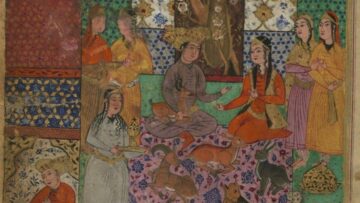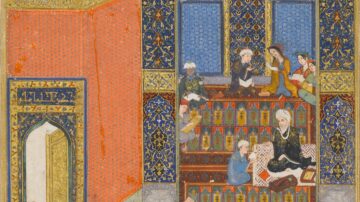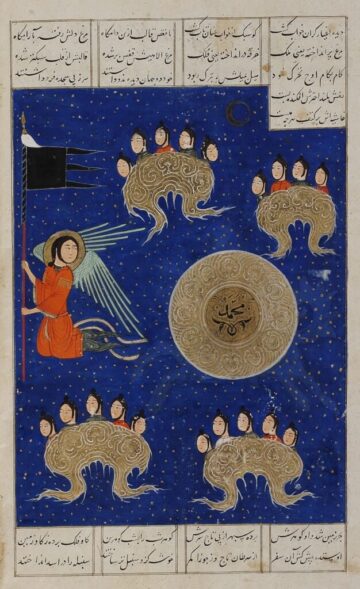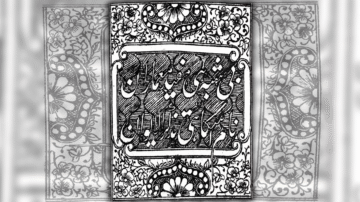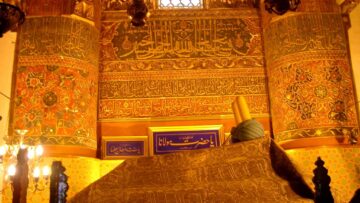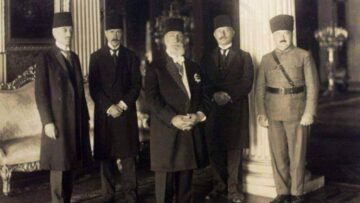- Qur’anic Studies
- AIHLS
- Lecture series
The Multiple Dimensions of Feminist Muslim Women’s Approaches to the Qur’an
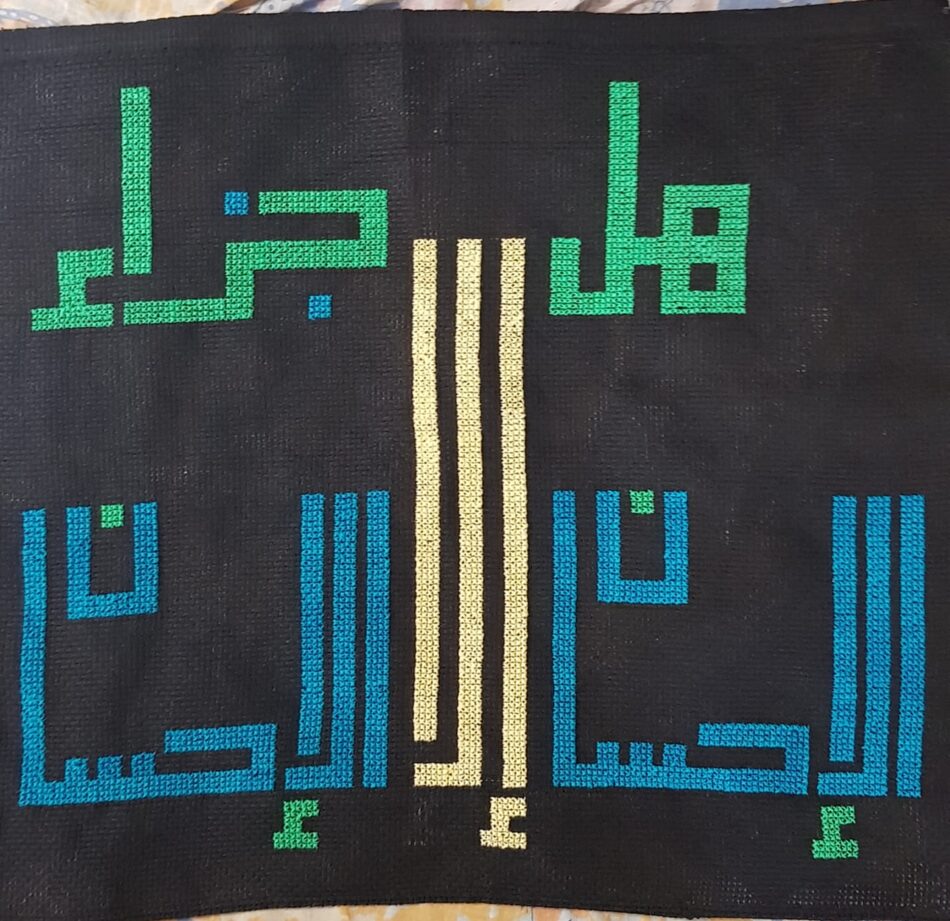
-
Status
Open -
Date
13 Jun 2025 -
Location
Online
This Arabic-language lecture will take place at 16.30 BST
From the outset, Muslim women feminists focused their interpretive and reformist efforts on the Qur’anic text. They examined foundational tafsirs to identify discriminatory gender discourses and patriarchal constructions of womanhood that have shaped the understanding and interpretation of gender relations within the Islamic paradigm. The early pioneering generation of Muslim women scholars began by exposing and critiquing these biases and misinterpretations within the historical, social, and cultural contexts of their times. This effort mainly focused on a close re-reading and analysis of various verses and concepts related to gender in the Qur’anMuslims believe that the Holy Qur’an contains divine revelations to the Prophet Muhammed received in Mecca and Medina over a period of 23 years in the early 7th century CE. More. It has led to the production of a substantial body of research and numerous studies in Qur’anic interpretation, offering alternative understandings based on diverse approaches and methodologies.
This presentation will tackle such a gender-sensitive perspective using a holistic and multi-dimensional approach to the Qur’anic vision and discourse, focusing on justice, equity, and beauty. The main levels of discussion are: (a) the egalitarian perspective; (b) the social and liberational perspective; (c) the ethical dimension; and (d) the aesthetic and textual dimension. Lastly, this lecture will discuss the intersection between the decolonial perspective and “Muslimah” theology.
Speaker
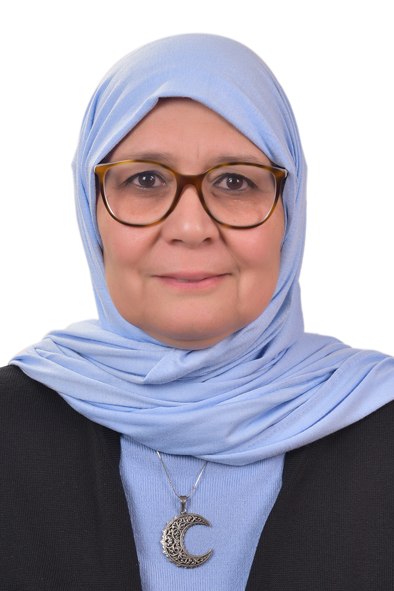
Omaima Abou-Bakr
Professor
Omaima Abou-Bakr is a Professor of English and Comparative Literature at Cairo University, a founding member of “The Women and Memory Forum”, and a researcher in the Knowledge Building Team of the global organisation “Musawah”. She specialises in medieval Sufi poetry and comparative topics in medieval English and Arabic literature. Her scholarly interests also include women’s mysticism and female spirituality in Christianity and Islam, feminist theology, Muslim women’s history, gender issues in Islamic texts, and Qur’anic interpretation. She has published articles in both English and Arabic on poetry and medieval literary texts, historical representations of women in pre-modern Muslim societies, women and gender in religious discourses, and Islamic feminist issues.
Moderator
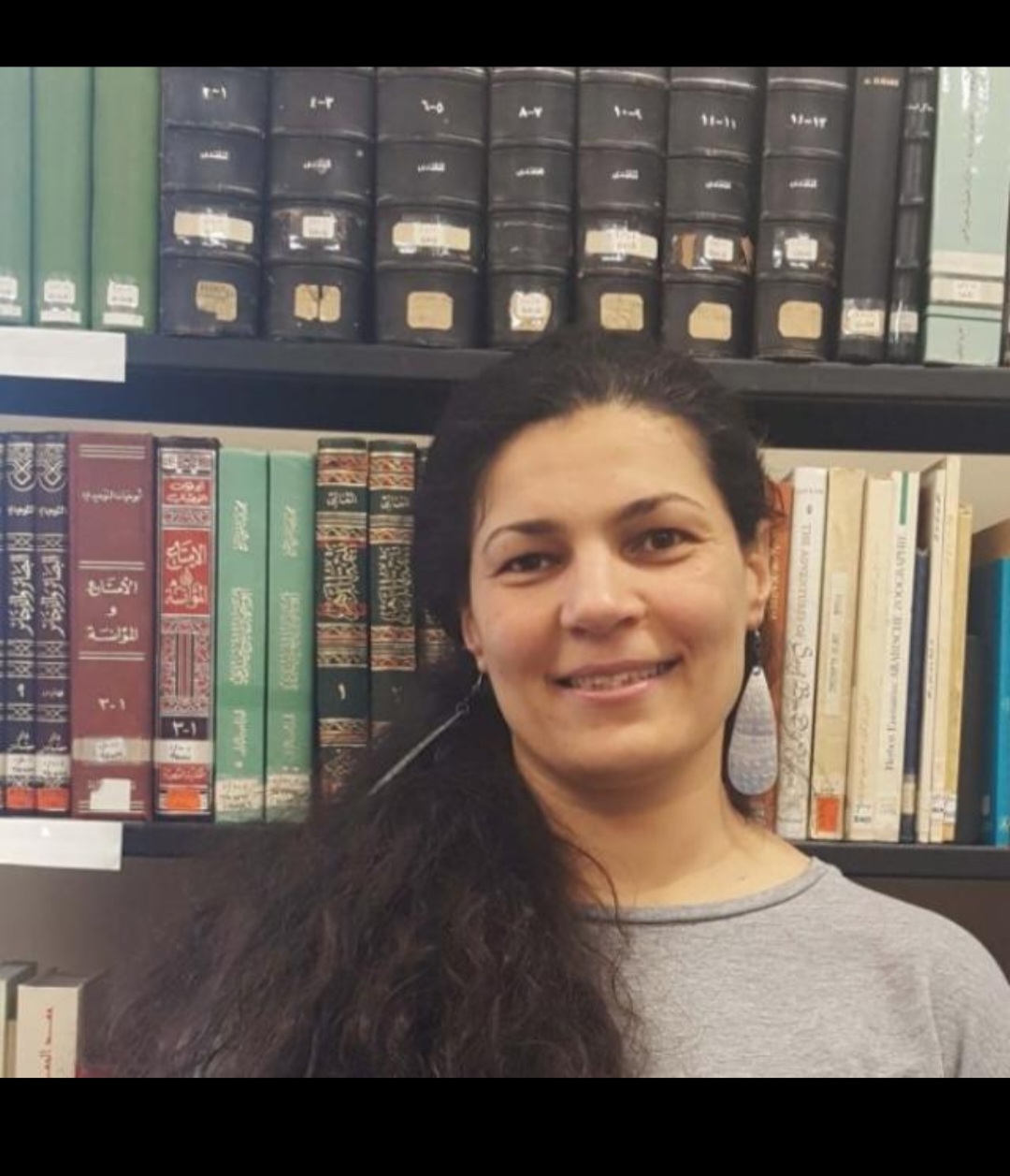
Ula Zeir
Ula has a PhD in Islamic and Middle Eastern Studies from the University of Edinburgh. The title of her thesis is “The Resettlement of the Syrian Ismaʿilis in Salamiyya in the mid-Nineteenth-Century Ottoman Syria“. Ula’s work has been heavily enriched by the Ottoman archival materials, and the oral tradition of the Syrian Ismaili community. In 2011 and 2013, she worked as an independent researcher at the Prime Ministry State Archives in Istanbul, Turkiye, which earned her the knowledge and expertise in Ottoman archival materials. Currently, she works as a Content Specialist/Arabic Language and Gulf History at the British Library in London. Her research interests include the Social and Cultural History of Greater Syria, the Middle East and the Gulf region; Ottoman History; Archival Research; Folk Music; Oral History; Arabic Poetry; and Sufism.
المقاربات المتعددة للقرآن الكريم في أبحاث النسويات المسلمات
توجّه إجتهاد النسويات الاسلاميات من البداية نحو النص القرآنى ودراس التفاسير المؤسّسة ورصد خطابات النوع والتصورات عن المرأة فيها من المنظور الذكورى الذى أثر على الفهم والـتأويل والقصور حتى فى تطبيق الآليات والمعايير التى أرساها العلماء أنفسهم فى كتب أصول هذا العلم. اتسمت دراسات الجيل الأول منهن خاصة فى الغرب بالتعامل النقدى فى معظمه، أى كشف عيوب وجهة النظر الذكورية فى سياق تلك العصور فى التأويل بصفة عامة، من خلال رصد الآيات أو المفردات القرآنية المُحيّرة مثل ’القوامة‘ و’الطاعة‘ و’النشوز‘ و’درجة‘ و’اضربوهن‘ والتعدد والطلاق…إلخ، وكانت هذه مرحلة ضرورية بالطبع، ثم انتقل الآن الجيل الثانى سواء فى السياق الغربى أو العربى الى المرحلة التالية من الثقة بالنفس من الناحية البحثية والعلمية بحيث أصبحن ينتجن دراسات وابحاث فى التفسير القرآنى مباشرة ويطرحن إستنباطات وشروحات مختلفة للآيات باستخدام مناهج وتوجهات تفسيرية مختلفة. يتناول هذا العرض نموذجا لهذه الرؤية الواعية بقضية النوع في شكل مقاربات شاملة ومتكاملة لموضوع العلاقات بين الجنسين في المنظومة القرآنية ككل، والتي ممكن أن تساهم في تقديم طرح مختلف وتفسير أقرب إلى مقاصد العدل والقسط والإحسان الأساسية. المحاور الرئيسية تتضمن: المنظور المساواتي (الأنطولوجي)، والمنظور الاجتماعي (التحريري)، والمنظور الأخلاقي، والمقاربة الجمالية/التحليلية للنص، وأخيرا مناقشة العلاقة مع نظريات ’تقويض الكولونيالية‘ والتأسيس لمجال ’اجتهاد المسلمة في العلوم الدينية‘.
المحاضر

أميمة أبوبكر
أستاذة
الدكتورة أميمة أبوبكر أستاذة الأدب الانجليزى والمقارن بجامعة القاهرة، وعضوة مؤسِّسة “لمؤسسة المرأة والذاكرة” فى مصر، وباحثة فى حركة “مساواة” الدولية. تخصصت فى الشعر الصوفى فى العصور الوسطى والموضوعات المقارنة بين الأدب الانجليزى والعربى. وتتضمن اهتماماتها الأكاديمية أدب ’الروحانيات‘ والتصوف النسائي فى الاسلام والمسيحية، المعرفة الدينية من منظور نسوى، النساء فى التاريخ الاسلامى، وقضايا المرأة والنوع فى التراث الاسلامى وفى الخطابات الاسلامية المعاصرة، والتفسير القرآني. نشرت عددا من المقالات والدراسات الأكاديمية حول الشعر الانجليزى والعربى وغيره من النصوص الأدبية فى العصور الوسطى، وحول تطورالخطابات الدينية المعنية بالنساء، وتيار النسوية الإسلامية.
الومدير

عُلا زعير
حصلت عُلا محمد زعير على شهادة الدكتوراه في الدراسات الإسلامية والشرق أوسطية من جامعة إدنبرة المملكة المتحدة، وعنوان أطروحتها هو استقرار الإسماعيليين السوريين مجدداً في سلمية في سوريا العثمانية أواسط القرن التاسع عشر. وقد أثرَت علا عملها بشكل كبير بالمواد الأرشيفية العثمانية والتقاليد الشفهية للإسماعيليين السوريين. وفي عامي 2011 و2013 عملت عُلا كباحثة مستقلة في أرشيف الدولة التابع لرئاسة الوزراء في إسطنبول، مما أكسبها معرفة وخبرة في المواد الأرشيفية العثمانية. وتعمل حاليّاً كمتخصصة محتوى أرشيفي/ لغة عربية وتاريخ الخليج في المكتبة البريطانية في لندن. وتشمل اهتماماتها البحثية التاريخ الثقافي والاجتماعي لبلاد الشام، الشرق الأوسط ومنطقة الخليج، والتاريخ العثماني، والبحوث الأرشيفية، والموسيقى الشعبية، والتاريخ الشفوي، والشعر العربي، والتصوف.

